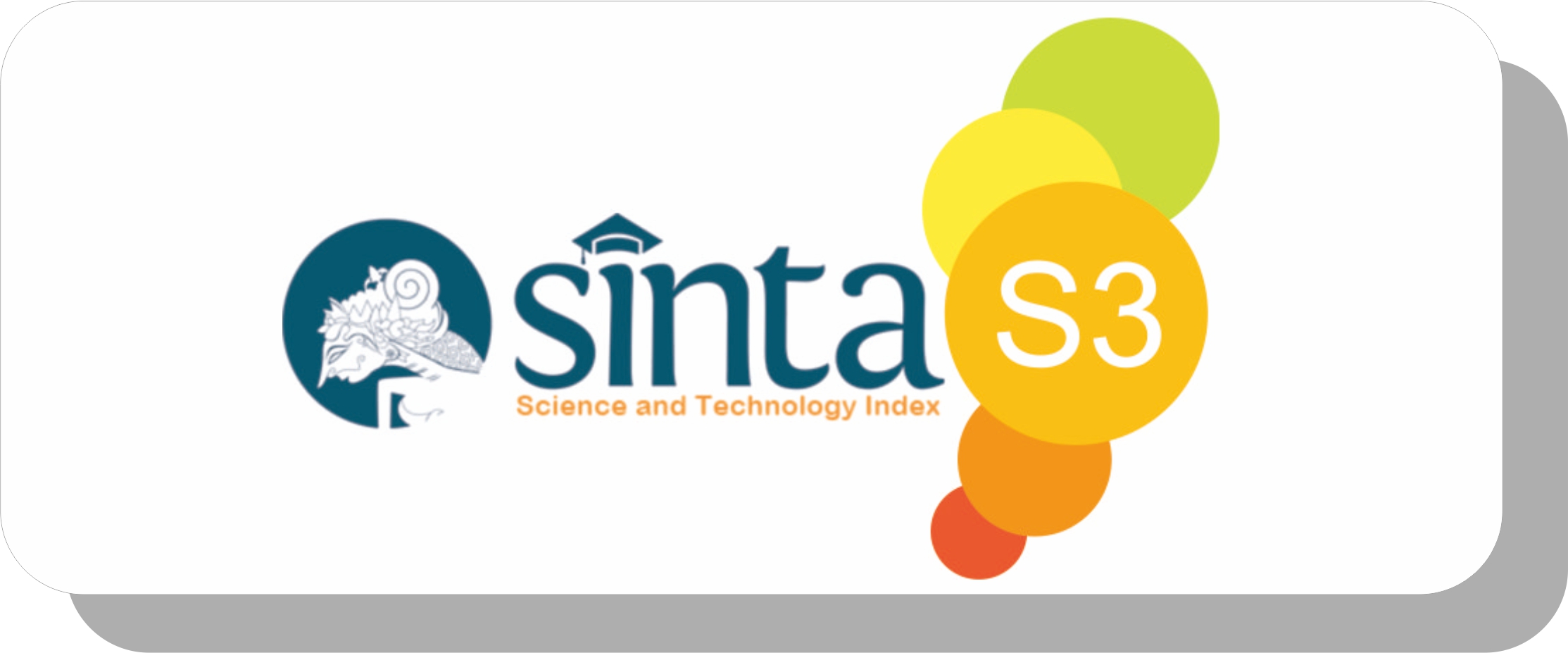Jambi City Government's Strategy for Community Economic Recovery During the Pandemic Through the Pakar Kasih Program
DOI:
https://doi.org/10.22219/jurnalsospol.v9i1.25613Keywords:
Covid-19, Government, Jambi, Pakar Kasih, StrategyAbstract
Purpose of this study is to determine the Jambi City Government's Economic Recovery Strategy through the Padat Karya Kali Bersih Program (Pakar Kasih) using the Fred R. Dafid concept, namely strategy determination, namely, strategy formulation, strategy implementation, strategy evaluation. Research method used is qualitative with the aim of explaining the phenomenon deeply through data collection by interviewing, observing, and documenting. Results obtained by the Pakar Kasih program are the Jambi Mayor's innovation program in the midst of the Covid-19 pandemic in 2020, which aims to provide a stimulus for people's income to absorb a lot of workers as an additional income for people affected by the economy due to the Covid-19 outbreak. The formulation of the strategy refers to presidential decree number 9 of 2020, government regulations, ministerial regulations of the interior, and Jambi Mayor Regulation Number 37 of 2020. Implementation of the strategy as many as 1102 people of Jambi City participated in the Padat Karya Kali Bersih program at 23 drainage locations in Jambi city. with a length of 25.3 KM with a total APBD of approximately 3 billion. The evaluation of the Pakar Kasih program strategy is held once a year, preferably twice a year or every 6 months.
Downloads
References
Badan Pusat Statistik. (2021) . Persentase Penduduk Miskin September 2020 naik menjadi 10, 19persen.
Creswell, J. (2014). Research Design: Qualitative, Quantitative, and Mixed Methods Approaches. 4th Edition. The New Zealand dental journal (Vol. 86). SAGE.
Erlisa S., Faisal N., & Sobri, M., K. (2021) Efektivitas Komunikasi Organisasi Dalam Penguatan Potensi Bumdes Pada Pelaksanaan Padat Karya Tunai Desa Di Masa Covid-19. Jurnal Pemerintahan dan Politik, 6 (2).
Freddy, R. (2015). Analisis SWOT Teknik Membeda Kasus Bisnis, Penerbit PT. Gramedia Pustaka Utama,Jakarta.
Fred R. David (2011), “Strategic management can be defined as the art and science of formulating, implementing, and evaluating crossfunctional decisions that enable an organization to achieve its objectives.”
Hadi, K., H., Musa, R., & Sadar, A., R. (2022). Manfaat Program Padat Karya Revitalisasi Drainase di Waktu Covid 19. Jurnal Flyover (JFO), 2 (1).
Hamid, D. (2015). Konsep Manajemen Strategi dan Kebijakan Bisnis. Modul Kebijakan Bisnis.
Kartiko, N. D., & Rachmi, I. F (2021) Strategi Pemulihan Pandemi Covid-19 Bagi Setor UMKM di Indonesia. Jurnal syntax Transformasi, 2 (5).
Megawati, S. (2022). Evaluasi Kebijakan Padat Karya Tunai Di Desa Pekarungan Kecamatan Sukodono Kabupaten Sidoarjo. Jurnal Publika, 10 (2).
Miles, B.M, dan Huberman, M, (2001). Analisis Data Kualitatif, Universitas Indonesia Press, Jakarta.
Peraturan Pemerintah (PP) Nomor 23 Tahun 2020 tentang Pelaksanaan Program Pemulihan EkonomiNasional
Rapitasari, D. (2021). Strategi Pemulihan Ekonomi Nasional di Jawa Timur melalui JATIM BANGKIT. Majalah Ekonomi, 26(1), 62-70.David, Fred R. 2006. Manajemen strategis. Edisi ke S. Jakarta: Penerbit SalembaEmpat.
Risa, H., Badaruddin, & Tanjung M., (2021) I mplementasi Program Padat Karya Tunai Dari Dana Desa dalam Mengatasi Kemiskinan Masyarakat Desa Karang Gading. Jurnal Perspektif, 10 (2).
Tobing, M. (2021). Analisis Kebijakan Pemulihan Ekonomi Nasional pada masa wabah pandemi (Covid-19) Terhadap Industri Parawisata Sektor Perhotelan. IKRAITH-EKONOMIKA, 4(3), 11-24.
Yam, J. H. (2020). Manajemen strategi: konsep & implementasi. Nas Media Pustaka.
Downloads
Published
How to Cite
Issue
Section
License
Copyright (c) 2023 Suhendri, Noor Khalida Magfirah, Saean Hufron

This work is licensed under a Creative Commons Attribution-ShareAlike 4.0 International License.
Authors who publish with this journal agree to the following terms:
- Authors retain copyright and grant the journal right of first publication with the work simultaneously licensed under a Creative Commons Attribution-ShareAlike 4.0 International License that allows others to share the work with an acknowledgement of the work's authorship and initial publication in this journal.
- Authors are able to enter into separate, additional contractual arrangements for the non-exclusive distribution of the journal's published version of the work (e.g., post it to an institutional repository or publish it in a book), with an acknowledgement of its initial publication in this journal.
- Authors are permitted and encouraged to post their work online (e.g., in institutional repositories or on their website) prior to and during the submission process, as it can lead to productive exchanges, as well as earlier and greater citation of published work (See The Effect of Open Access).

This work is licensed under a Creative Commons Attribution-ShareAlike 4.0 International License.


















